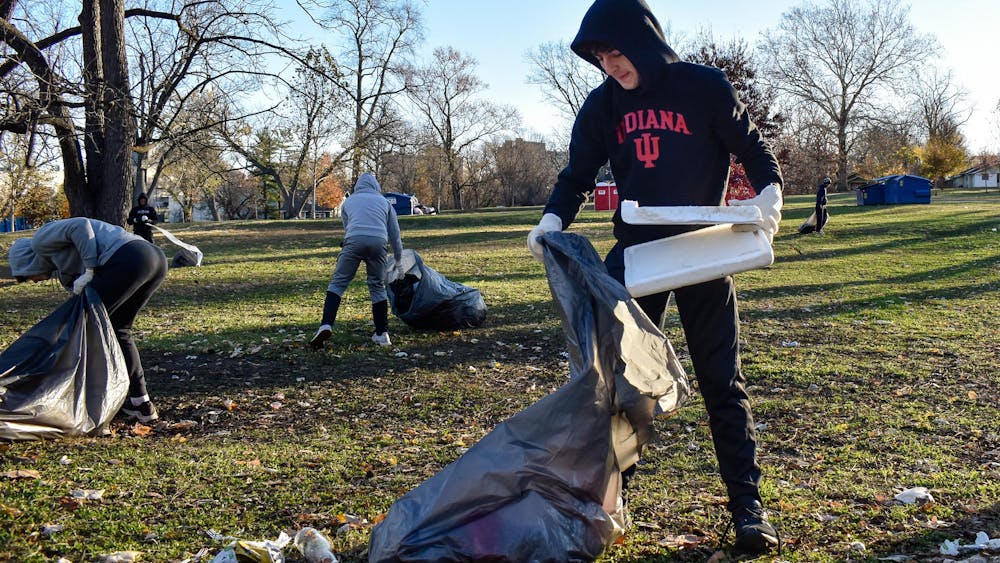Since 1907, corporations have been restricted by how much they can give to political campaigns.
That is, until now.
The Supreme Court ruled in January that government can’t ban corporations’ political spending in elections, calling it an extension of free speech.
The ruling had everyone from pundits to progressives to professors questioning how much money will be spent this election cycle now that the 103-year ban is overturned.
As of last week, spending by outside organizations to influence congressional elections is up more than 60 percent compared to the same period in 2006, according to a report by the Sunlight Foundation.
What’s more, some of those groups — called 501(c)4s — do not have to detail where their contributions come from.
According to the Internal Revenue Service, these groups’ main purpose is not political but rather to enhance the social welfare. But unlike other recognized tax-free non-profits, 501(c)4s can lobby as much as they want.
In response, Democrats tried to push the DISCLOSE Act, which would require these corporations and unions to release details of their donors, through Congress this summer.
On Friday, Senate Republicans defeated the legislation for the second time by a vote of 59-39, leaving Democrats one vote short.
So far, more than 30 groups have registered with the Federal Elections Commission since it gave the go-ahead this summer, opening up a window of uncapped political spending America has never seen.
Unlimited spending
Previously, if an organization wanted to influence an election, it did so through a Political Action Committee. There are thousands of PACs, but they face limits on how much they can give to candidates, parties or other PACs.
Most importantly, they must detail their donations or expenses to the FEC, which makes them available to the public.
Super PACs, as these new 501(c)4 groups are colloquially known, have few of those restrictions and can spend as much money for or against a candidate as they want.
Officially, these groups are called independent expenditure-only committees by the FEC. Because their main purpose is progressing social welfare and not politics, they don’t have to detail contributors.
Under the Supreme Court’s January ruling, corporations still cannot make direct contributions to candidates. They can, however, funnel as much money as they want through a super PAC aligned with their politics.
Since the FEC allowed the formation of expenditure-only super PACs, right and left-wing organizations have taken advantage of the new loophole.
Crossroads Grassroots Policy Strategy is one of those organizations. Formed by ex-George W. Bush advisor Karl Rove and former Republican National Committee Chairman Ed Gillespie, it partnered with American Crossroads to raise almost $15 million in a one-month period this summer.
But Crossroads GPS, unlike its sister organization American Crossroads, which is registered with the FEC, doesn’t have to list its donors. Moreover, as a nonprofit regulated by the IRS, it doesn’t even have to list its income until next spring, well after the Nov. 2 elections.
Together, the two groups have pledged to spend more than $50 million this election cycle.
Before super PACs, 527 groups were formed with the express purpose to affect political elections.
The 527 group Swift Boat Veterans for Truth up-ended the 2004 election by smearing Democratic presidential nominee John Kerry, claiming he lied about his background in the Vietnam War and challenging the legitimacy of his Navy medals.
But 527s, which have increased dramatically in the past decade, are regulated by the FEC and must file monthly reports detailing their expenditures and sources of income.
In the 2008 election, spending by 527s declined to $244 million from $439 million in 2004 — a drop of 44 percent, according to the Center for Responsive Politics.
As 527s decrease, 501(c)4s take their place. Existing groups have also made the move to unlimited spending status, such as the Club for Growth, which supports lower taxes and favors Republicans, and the League of Conservation Voters, which usually supports Democrats.
Although no one can predict how much money will be spent this election cycle, the trend is already skyrocketing.
From 2000 to 2008, the total cost of all federal elections increased 71 percent, while the cost of non-presidential elections increased by 30 percent from 2002 to 2006.
But those numbers were under a different environment, with rules that began more than 100 years ago. This year, it’s a matter of wait and see.
But while some may cry foul at the lack of restrictions on corporate giving, Supreme Court Justice Anthony M. Kennedy defended the decision, saying the free speech issues are most important.
“If the First Amendment has any force, it prohibits Congress from fining or jailing citizens, or associations of citizens, for simply engaging in political speech,” Kennedy wrote.
New loophole means political donations rise at cost to transparency
Get stories like this in your inbox
Subscribe





